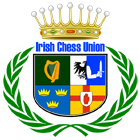Famous Father
Alexander McDonnell was the one of the finest chess players ever produced by Ireland. And the only Irishman to challenge for what was, in effect, the World Championship. He was born in Belfast in 1798, the son of a surgeon (also Alexander) who lived variously in Berry Street and Hercules Street (now Royal Avenue).
McDonnell's father had a brother, James. The two brothers were brought up in the Glens of Antrim, prominent members of the McDonnell clan, the Irish section of Clan Donald. They could trace their ancestry back for centuries, back to Somerled, the first "Lord of the Isles". James and Alexander senior were sent to Edinburgh for a medical education; both then returned to practice medicine in the advancing town of Belfast. James achieved fame as the founder of Belfast's Fever Hospital, "the father of medicine in Belfast", and one of the city's leading citizens.
Alexander Junior
Aged 18, Alexander junior left Belfast to work in Demarara in the West Indies, where he became known to the leading West Indian merchants. In 1820 he became Secretary of the Committee of West Indian Merchants, where his duties were to watch the progress through Parliament of bills connected with the West Indies.
In 1825 McDonnell became a pupil of William Lewis, a leading figure in London chess life. In 1831 George Walker formed the Westminster Chess Club, where McDonnell soon became accepted as the strongest player.
Labourdonnais
At that time Paris was the centre of the chess world. Its presiding genius had been Philidor, but Philidor was too great, and his ideas too far ahead of his time, to be fully understood.
Philidor's mantle had fallen on Louis Charles Mahe de la Bourdonnais - in English variously known as Labourdonnais, La Bourdonnais and Bourdonnais. Labourdonnais was born in 1797 on the French island of Reunion, son of its French governor. He became a chess addict at school and soon, probably, the world's strongest player. He visited London in 1825, defeating all the best players. Then early in the 1830s he lost his considerable fortune in land speculation, forcing him to earn his living at chess.
Challenge
Soon after its formation, the Westminster Chess Club issued a challenge on McDonnell's behalf. For 4 months, between June and October 1834, the two champions met almost every day bar Sundays in London, to contest a series of matches. Sessions started at noon and lasted to about 7 pm. The results were close, apart from the first match. McDonnell won the second and was ahead in the last, when the contest was abruptly broken off. Labourdonnais then returned to France.
85 games are known. McDonnell's results were:
| Match | Won | Lost | Draw |
|---|---|---|---|
| 1 | 5 | 16 | 4 |
| 2 | 5 | 4 | 0 |
| 3 | 5 | 6 | 1 |
| 4 | 3 | 8 | 7 |
| 5 | 4 | 7 | 1 |
| 6 | 5 | 4 | 0 |
The matches were followed keenly in the English-speaking world, and the games became well-known. This was a period of romanticism in chess where gambits were offered and accepted without question, despite the enormous stakes (literally, for large wagers rested on the outcome of the matches). The Evan's Gambit and the King's Gambit were popular: here is one of McDonnell's wins with the latter. However, his results might have been better had he not persisted in some dubious lines, such as seen in this game. One of his best wins was the following crazy game.
Within a year McDonnell died on 14th September 1835, a victim of Bright's disease - its course accelerated, said his friends, by the exertions of the confrontation. Labourdonnais returned to London several times, dying there in 1840. Both McDonnell and Labourdonnais are buried in Kensal Green All Souls' cemetery in London.
